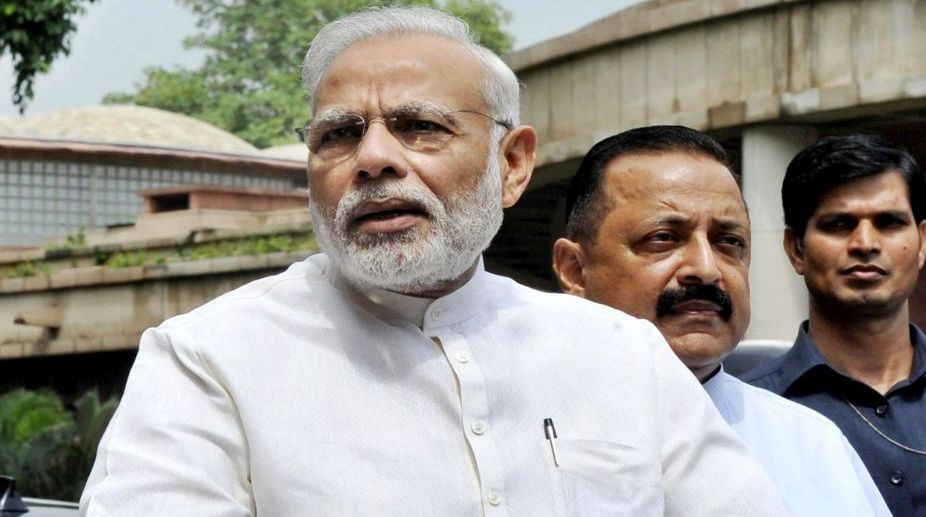Assam’s grand Jhumoir show: 8,000 performers, PM Modi to attend
Assam’s Jhumoir Binandini event on February 24 will feature over 8,000 performers showcasing the traditional Jhumoir dance at Sarusajai Stadium, Guwahati.

Narendra Modi (Photo: SNS)
Prime Minister Narendra Modi and Paytm founder Vijay Shekhar Sharma were the only two Indians to make it to an annual list of '100 most influential people in the world' this year released by the Time magazine on Thursday.
The list features pioneers, artists, titans, leaders and icons from around the world honoured for "the power of their inventions, the scale of their ambitions, the genius of their solutions to problems that no one before them could solve."
Advertisement
The magazine has also included US President Donald Trump, Russian President Vladimir Putin and British Prime Minister Theresa May in the new list of 100 most influential people.
Advertisement
The profile of Modi, 66, written by author Pankaj Mishra, said that in May 2014 – long before Trump seemed conceivable as a US president – Modi became the prime minister of the world's largest democracy.
"Once barred from the US for his suspected complicity in anti-Muslim violence, and politically ostracised at home as well, this Hindu nationalist used Twitter to bypass traditional media and speak directly to masses feeling left or pushed behind by globalisation, and he promised to make India great again by rooting out self-serving elites," it said.
Nearly three years after he came to power, Modi's vision of India's economic, geopolitical and cultural supremacy is far from being realised, the profile read, but his "extended family of Hindu nationalists have taken to scapegoating secular and liberal intellectuals as well as poor Muslims."
"Yet Modi's aura remains undimmed. He is a maestro of the art of political seduction, playing on the existential fears and cultural insecurities of people facing downward or blocked mobility," it said.
Modi's elections victory in Uttar Pradesh, India's most politically significant state, by a landslide confirmed that "elected strongmen are the chief beneficiaries of a global revolt against elites."
For 43-year-old Sharma, Infosys co-founder Nandan Nilekani wrote that when India's government unexpectedly scrapped 86 per cent of the country's currency notes in November, Sharma "seized the moment".
As Indians scrambled to exchange the banned notes for new currency, Paytm, Sharma's digital payments startup, went on a promotional spree, inviting Indians to start using Paytm's digital wallet to pay for everyday goods and services.
"It worked. By the end of 2016, Paytm had 177 million users, compared with 122 million at the beginning of the year," Nilekani wrote.
Sharma had "catapulted himself into a nation's consciousness. It was a masterstroke by a small-town boy who studied in a Hindi medium school before conquering the country's Anglophone startup world," he wrote.
Paytm is now backed by the chief of China's Alibaba, Jack Ma, and Sharma is branching out into the more heavily regulated world of banking, with plans to offer digital accounts. "He will face new challenges from deep-pocketed and more-experienced competitors. But knowing Vijay, he will win the next time around too," his profile read.
Advertisement